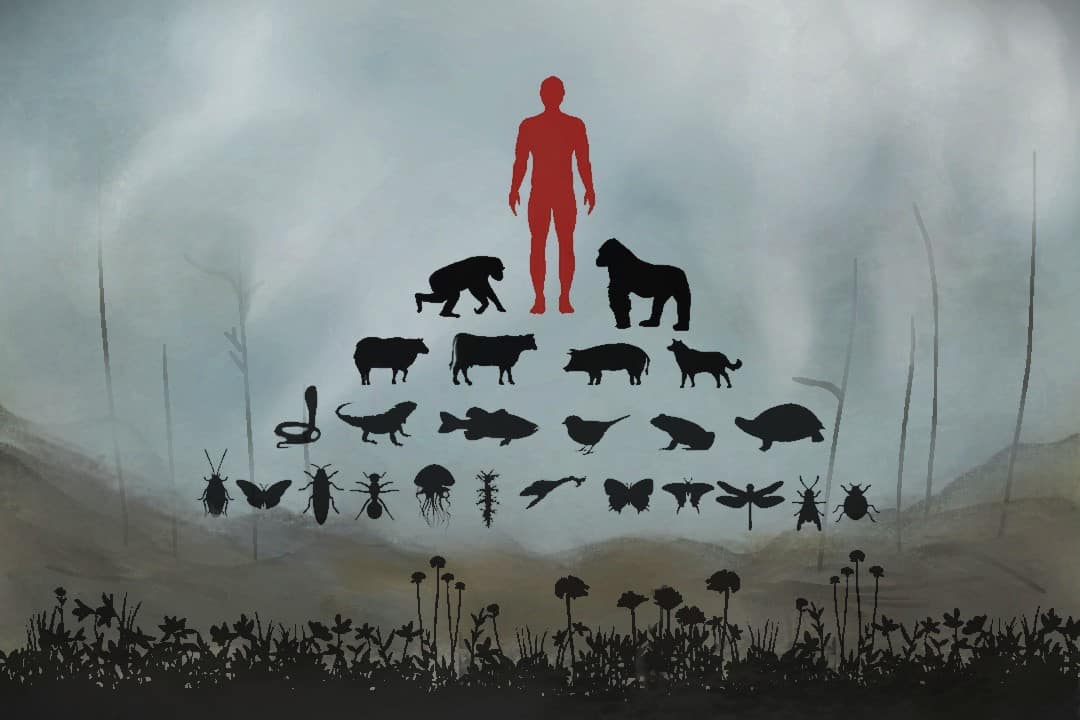When it comes to climate change, we tend to take a rather reactive approach, with discussions often revolving around the most pressing climate needs of the moment. We find ourselves asking questions like how many years we’ve got left or how much carbon emission we’ve been putting out since 2016. How much sea levels have risen by. Which animal is going extinct this year.
Consequently, such climate discussions never take a proactive approach and seek to understand the big picture. We’re never asking about the “why” when it comes to the factors resulting in climate change. Not why, as in why companies need to pollute so much — we all know the big green dollar-signed reason for that — but instead, why we do so much to our earth without taking into account the consequences.
The answer to the last question requires a bit more digging into the archives of environmental ethics but, eventually, you’ll find yourself with a slew of terms such as liberation and welfare, instrumental value, ecofeminism, or anthropocentrism. That last one is particularly important when investigating why we treat the earth the way we do.
Anthropocentrism, taken literally, means humans at the centre. As one of the most well-known concepts of the environmental ethics world, anthropocentrism derives from the belief that humans, and only humans, possess intrinsic value.
On such grounds, this ethos thus claims that we are naturally above all other entities, like plants and water and animals, and therefore, by process of hierarchy, are entitled to use them. It’s a little like those medieval-times feudalism pyramid diagrams that we’ve all seen a thousand times in middle school history class, where man — yes, man alone, not woman, who’s one step below — stands at the very top. Man is the king, the monarch, ruler of the peasants — and most importantly, of the natural world.
Going hand in hand with industrialization, modernization, and the technology boom over the last two hundred years, anthropocentric thought has been used to perpetuate environmental destruction.
Put simply, it’s a philosophical justification for resource exploitation. When animals and biomes are not seen as our living counterparts, but rather as tools at our disposal, there’s an intrinsic motivation to abuse them. Consequently, whatever maltreatment we inflict upon them is more or less okay because we benefit from it — and as anthropocentrism dictates, we’re more important anyway. As author Haydn Washington would say, we portray ourselves as the “owners” of nature.
When we apply the concept of anthropocentrism to modern society, it explains why we engage in the mass extraction, destruction, and exploitation of the world and its structures. From the smallest phenomena like the man-induced extinction of the dodo bird, up to global issues of deforestation and air pollution, we find ourselves in a constant loop of taking more and more, with little to no remorse or thoughts of what we give to the earth in exchange for what we take.
We commit practices of cosmetic animal testing and excessive ocean trawling, horrifying treatment of poultry and destructive nonrenewable energy mining, and the current rationale of anthropocentrism allows it — justifies it even, because all this land and water and air is allegedly meant to be ours.
This isn’t to say that anthropocentrism is the direct cause of environmental destruction. Rather, anthropocentrism is one of many explanations for how we as humans view our natural environment, and why we choose to act upon it the way we do.
But with that being said, it’s time we realize just how unsustainable this belief is. The modern world is so intensely focused on economic growth and taking industrialization to the next level that it ignores the state of every other living being on this planet. While the last century has been a significant era for the expansion of technology and human capability, it’s also seen perhaps the greatest worldwide loss of habitat and species, and the greatest acceleration of climate change in history. For the first time, this phenomenon is human driven — and not in a positive way.
For the better half of the last hundred years, it has been about humans and only humans. Even as the tides begin to change in favour of environmental preservation, and climate change awareness ramps up higher than ever, there is an even bigger need to shift our thinking away from the one-dimensional plane we’ve been on for so long. Only then will efforts to address the climate crisis really be effective.
Isabella Liu is a second-year student at Victoria College studying international relations, public policy and environmental studies. She is an associate comment editor at The Varsity.


